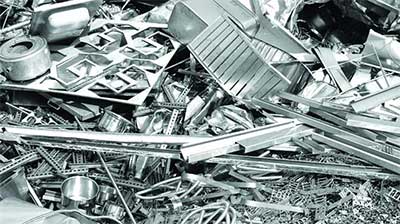Steel Scrap: A blessing in disguise
Production of steel from scrap is the best way to minimize the industrial GHG emissions as this will bring down 0.5 tonne of CO2 per tonne of steel.
Of the total Green House Gas (GHG) emissions 6-7% contribution comes from the global steel industries. GHG emissions of the Indian steel industry are 2.0-2.8 tonnes of CO2 per tonne of crude steel, whereas global average is of 1.8 tonne of CO2.
Many steel producing countries are taking effort to reduce the emission by shifting from iron-ore-based production to scrap-based production. Indian Government has also made announcement of introduction of vehicle scrapping policy and doubling ship-breaking capacity to 9 million tonnes per year which will minimize reliance on import of scrap and would reduce GHG footprint of iron & steel.
Whilst most steel-producing countries are using Electric Arc Furnaces (EAF) for scrap-based production, in India, both EAF and Induction Furnaces (IF) are used. The main CO2 load in EAF-based steel production doesn’t come from the off-gas but from processing the electricity used in melting of the scrap. Thus, this can be more cut down if renewable power is used as a source of electricity. Hence, the new vehicle scrapping policy and doubling ship breaking capacity declared by the Government of India in the budget of 2021 may prove to be a blessing for the steel industry to attain its GHG emission reduction targets as large amount of ferrous scrap is expected to be generated from the scrapping of old vehicles.
Due to limited supply of ferrous scrap in India, the steel ministry, in November 2019, issued the Steel Scrap Policy to bring focus on scientific processing & recycling of ferrous scrap. The scrapping of vehicles produces around 70-75% ferrous scrap, 6-8% non-ferrous metal scrap and remaining various other scraps of rubber, plastic, etc. The announcement of vehicle scrapping policy will boost indigenous availability of ferrous scrap in steel industry.
This will also build up the process of resource efficiency and circular economy as significant amount of natural resources shall be preserved with significant reduction in emission and it will help in heading towards a sustainable steel industry.







